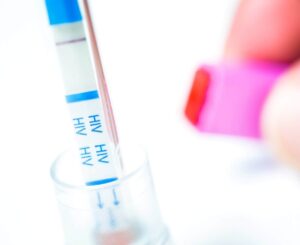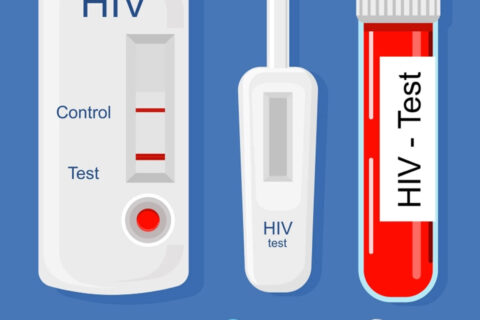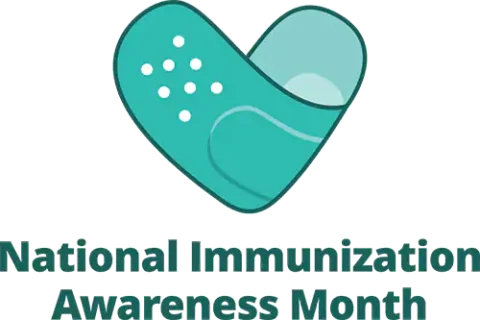How Do HIV Test Kits Work?
Learning you’ve been exposed to HIV is stressful and worrisome. You want answers, but the prospect of scheduling an HIV test may be daunting. Thanks to the advent of at-home HIV testing, the process has become more accessible and convenient than ever before.
What is an At-Home HIV Test?
HIV self-testing kits allow you to test for HIV in the privacy and comfort of your home. It’s a simple, user-friendly method for detecting the presence of HIV antigens or antibodies. These tests are designed to be self-administered without a medical professional present.

There are two main types of home HIV test kits: rapid tests and mail-in tests. Rapid tests provide results within 20 to 30 minutes, while mail-in tests require sending a sample to a laboratory, with results available within a few days or weeks.
Are At-Home HIV Test Kits Reliable?
When performed correctly, rapid and mail-in tests provide an accurate and reliable means of determining your HIV status. One brand, OraQuick, is 92 percent accurate in detecting HIV-positive cases (known as test sensitivity) and 99.98 percent accurate in detecting when HIV is not present (known as test specificity). In comparison, traditional in-office laboratory tests have overall accuracy rates of over 99 percent.
At-home HIV test accuracy is influenced by several factors, including:
- Testing method: Rapid and mail-in HIV tests come in several forms, including antibody tests, antigen/antibody combination tests, and nucleic acid tests (NATs). Each method has its own sensitivity and specificity, affecting its accuracy.
- Window period: A false negative may occur if the test is taken too soon after HIV exposure and before the body has produced enough antibodies to be detected by the test.
- Sample quality: Improper collection technique or sample contamination can affect test results. Mail-in samples may also be subject to degradation during transport. To ensure accuracy, follow the sample collection instructions carefully, and store and transport the sample according to the recommended guidelines.
Should I Get Tested for HIV?
HIV (Human Immunodeficiency Virus) is primarily transmitted through sexual contact and by sharing drug injection equipment. An HIV-positive mother may also transmit the virus to her child during childbirth or breastfeeding. While rare, it’s also possible to contract HIV during a blood transfusion.
You should be concerned about your HIV status if you:
- Are sexually active with multiple sexual partners
- Are an injection drug user and have shared needles with others
- Are pregnant or planning to become pregnant
- Have a known HIV-positive partner
- Have received blood transfusions or organ transplants
Symptoms that may suggest the need for HIV testing include:
- Flu-like symptoms, which usually occur within two to four weeks of infection
- Swollen lymph nodes in the neck, armpit, or groin
- Skin rashes that don’t respond to treatment
- Recurrent infections, such as oral or genital herpes, yeast infections, or bacterial pneumonia
- Unexplained weight loss
Note that many people with HIV have no symptoms for years, so regular testing is crucial for those at an increased risk of infection. At-home kits are a convenient and accessible HIV testing option for those who don’t have access to healthcare facilities, are concerned about privacy, or prefer the convenience of testing at home.
Where to Get an HIV Home Test
HIV self-testing kits can be purchased online, at pharmacies, or through community-based organizations. The cost of an HIV self-testing kit depends on the type of test and where it’s purchased. Rapid tests typically cost between $40 and $60, while mail-in tests range from $50 to $100. Some health departments and non-profit organizations offer free or low-cost testing options for those with financial barriers to accessing a test kit.
How to Test for HIV at Home
The process for taking an at-home HIV test depends on the type of test you’re using. For rapid tests, you’ll need to obtain a small blood sample by pricking your finger with a lancet. Next, place the blood on the test device, where results will appear within a set time. For mail-in tests, you’ll need to collect a blood, saliva, or urine sample and send it to a laboratory for analysis. You’ll receive the results when they become available.
What to Do If the Self-Test is Positive
If your at-home HIV test result is positive, seek confirmation from a healthcare provider as soon as possible. This may involve undergoing a more sensitive laboratory test to confirm the diagnosis. If confirmed, your doctor will discuss treatment options and help you develop a plan to manage your HIV. Early detection and treatment are crucial for maintaining your health and reducing the risk of transmitting the virus to others.
What to Do If the Self-Test is Negative
If your HIV test returns a negative result, remember that the test may not be accurate if taken too soon after potential exposure to the virus. If this is a possibility, retest after the window period (typically three months) to ensure accuracy. Continue to practice safe sex and get tested regularly if you are at an increased risk for HIV. It’s also important to discuss your sexual health with your doctor and stay informed about preventative measures, such as pre-exposure prophylaxis (PrEP).
Seek HIV Testing and Treatment in Brevard County
At-home HIV test kits have revolutionized the way individuals take control of their sexual health by providing a convenient, accessible, and private option for testing. While these tests are highly reliable, you should consult a healthcare professional if you’re concerned about your health or the results of your test. The benefits of in-office testing at Brevard Health Alliance include:
- The immediate support of an Infectious Disease provider, Nurses, and Social Work and Therapy
- This can help you understand the test result, explain next steps, and set up all follow up appointments
- The immediate confirmatory testing
- The immediate opportunity to connect to resources as needed
Brevard Health Alliance is a leading provider of HIV treatment in Brevard County, FL. As a non-profit community health center, we offer accessible, patient-centered care with an emphasis on affordability. If you’re seeking HIV treatment or have concerns about your sexual health, please contact us to schedule an appointment at our Sarno/Melbourne, Titusville, or Palm Bay location. Our experienced team is prepared to help you manage your health and wellness.













































































































































